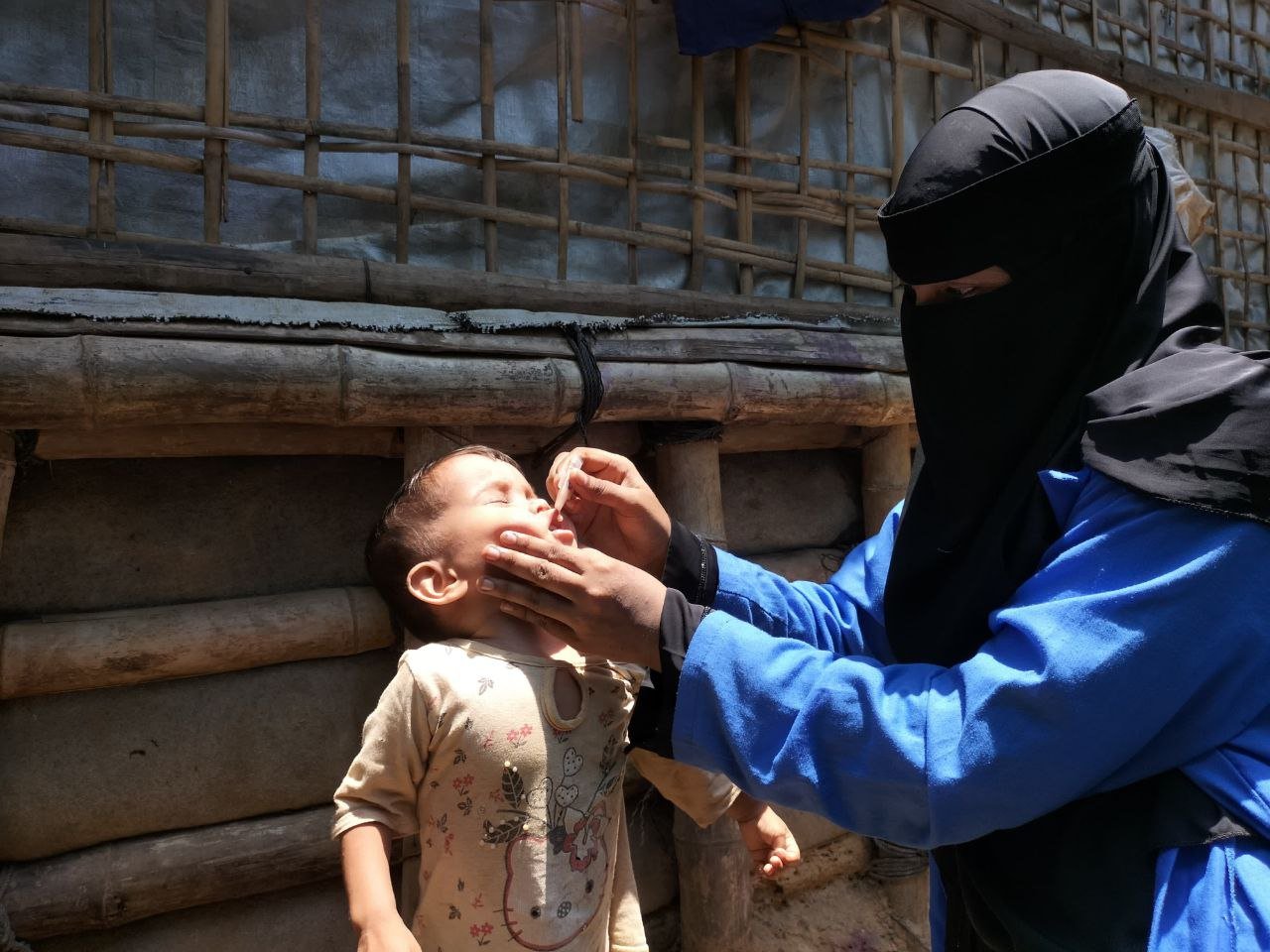Border News Agency
Cox’s Bazar, Bangladesh – April 27, 2025
In an urgent bid to prevent a potential cholera outbreak, Bangladesh’s health authorities, with support from the World Health Organization (WHO), UNHCR, and key humanitarian partners, have successfully completed a mass oral cholera vaccination (OCV) campaign targeting Rohingya refugees and nearby host communities.
The five-day campaign, which ran from January 12 to 16, 2025, comes amid a worrying surge in cholera cases. According to WHO, between June 2024 and January 2025, more than 570 culture-confirmed cases were detected, with a staggering 94 percent reported inside the refugee camps of Cox’s Bazar.
Over 976,000 people—exceeding the original target—received the Euvichol Plus oral cholera vaccine. The campaign covered 33 camps and the Bhasan Char Island, reaching individuals aged one year and older. Teams of more than 1,700 community health workers and supervisors conducted door-to-door visits, reaching nearly 195,000 households in just five days.
“We witnessed overwhelming participation from the community,” a health official involved in the campaign told reporters. “The vaccination coverage exceeded 100% in several areas, largely due to new arrivals and gaps in population estimates.”
Training and community engagement were key components of the effort. WHO, PATH, and the International Centre for Diarrhoeal Disease Research, Bangladesh (icddr,b) organized special training sessions for vaccination teams, focusing on proper vaccine administration, cold chain management, and accurate documentation. Meanwhile, UNHCR’s Community Health Working Group led mass awareness campaigns, delivering crucial hygiene and disease prevention messages to more than 570,000 refugees and local residents.
Experts say that previous rounds of OCV campaigns, conducted between 2017 and 2021, helped prevent major cholera outbreaks in the camps despite the challenging living conditions. Over 4.6 million doses were administered during that period.
Public health officials emphasized that while vaccination is a critical step, long-term solutions must include improvements in water, sanitation, and hygiene services.
“The successful rollout of the vaccine is a major achievement,” said Terence Ngwabe Che, WHO’s External Communication Officer in Cox’s Bazar. “But continuous investments in clean water and sanitation infrastructure are essential to eliminate the threat of cholera permanently.”
The initiative stands as a powerful example of coordinated humanitarian action in one of the world’s largest and most densely populated refugee settlements.






